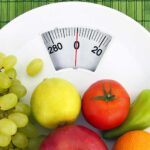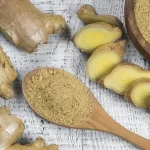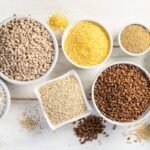How To Reduce Stomach Acid Effectively
This article will enlighten you on various ways regarding how to reduce stomach acid. If you have heartburn, you are not alone. Over 60 million people in the United States get heartburn at least once a month, and 15 million people feel heartburn every day.
Heartburn causes a burning pain in your chest, just below your breastbone. This discomfort is usually worse after eating, in the evening, or when you bend over or lie down.
Heartburn is most commonly caused by acid reflux. Acid reflux happens when stomach acid flows backward into the tube that connects your mouth to your stomach. This tube is called the esophagus. The acid irritates the esophagus, causing the burning feeling known as heartburn.
There are prescription medications and surgical procedures available to reduce acid reflux, but doctors usually save these treatments for severe, long-term, or serious cases. Many people with acid reflux prefer to avoid prescription drugs and surgery. Instead, they choose natural remedies to manage their symptoms.
How To Reduce Stomach Acid Naturally
Drink Diluted Baking Soda
Baking soda, also known as sodium bicarbonate, can help relieve symptoms of acid reflux. It is alkaline, meaning it can neutralize stomach acid.
- Dissolve ½ teaspoon of baking soda in a 4-ounce glass of water.
- Mix well before drinking.
- Drink slowly to avoid gas and diarrhea.
Drinking baking soda occasionally is generally safe. However, too much can be dangerous, causing alkalosis, a condition that can lead to cardiovascular problems. Additionally, baking soda is high in sodium and can interfere with the absorption of certain medications.
Drink Diluted Lemon Juice or Apple Cider Vinegar
Some people believe acid reflux occurs when the body does not produce enough stomach acid. They think that the acidity level in the stomach helps control the valve between the stomach and the esophagus, known as the lower esophageal sphincter (LES).
The LES usually remains closed to prevent food and acid from coming back up into the esophagus. According to this theory, if there is not enough acid, the LES relaxes too much, allowing acid to flow back into the esophagus.
There are no scientific studies proving that lemon juice or apple cider vinegar can reduce acid reflux. In fact, consuming acidic foods like these might worsen symptoms.
For those who want to try this method:
- Mix between a teaspoon and a tablespoon of lemon juice or apple cider vinegar into a glass of water.
- Drink before or after meals to see if it helps alleviate acid reflux symptoms.
Drink a Glass of Milk
The calcium in milk is alkaline, which may help neutralize stomach acid and provide temporary relief from acid reflux. Milk can also feel soothing to drink.
- Note: While milk can offer short-term relief, its fat and protein content might worsen acid reflux once digestion begins. To avoid this, try drinking lower-fat milk, which may be easier to tolerate during episodes of acid reflux.
Additionally, over-the-counter (OTC) preparations like Tums® or Maalox® contain calcium, providing similar benefits without the potential drawbacks of milk.
Chew Some Gum
Saliva is slightly alkaline due to the enzymes it contains. Chewing gum stimulates saliva production, and the act of swallowing can help push stomach contents and acid back into the stomach.
- Caution: Chewing gum is generally harmless, but avoid large quantities of artificially sweetened gum, as the sweeteners can cause diarrhea in some people. Swallowing air while chewing gum can lead to gas, so use gum in moderation.
Enjoy Ginger Root in Soups, Smoothies, or Tea
Ginger has been used for centuries to treat various stomach issues, such as stomachaches and nausea. It naturally soothes the stomach and can reduce stomach acid production.
Although it’s not entirely clear how ginger helps with heartburn, one study suggests it might decrease stomach acid production.
- To use ginger:
-
- Grate fresh ginger root into smoothies or soups.
- Sip on ginger tea before or after meals.
Take Iberogast®
Iberogast® is an herbal supplement that treats various digestive issues, including acid reflux, GERD, irritable bowel syndrome, stomach upset, nausea, constipation, cramping, bloating, and diarrhea. It is made from nine herbal extracts, such as peppermint, licorice root, and milk thistle fruit.
- Studies: One study showed that Iberogast® is as effective as traditional antacids at decreasing stomach acidity. Another study indicated that it could reduce indigestion symptoms as effectively as a placebo. Iberogast® can also suppress rebound acidity, which is an increase in stomach acid that often happens when someone stops taking acid reflux medications.
Iberogast® is available in liquid or capsule form. Follow the directions for use to relieve acid reflux symptoms.
General Advice
- Moderation: Take natural remedies in moderation. Overuse can worsen acid reflux or cause other digestive issues.
- Consult a Doctor: If your acid reflux continues, recurs, or worsens, consult your digestive doctor. A gastroenterologist can identify the underlying cause of your acid reflux and suggest an effective treatment plan.
YOU MAY LIKE: Ginger for Stomach Ulcer
Natural Remedies
There hasn’t been extensive research on natural remedies for acid reflux, and these remedies aren’t fully accepted by the medical or scientific communities. However, some people find that they help relieve symptoms. Here are a few options:
Baking Soda
- How to Use: Mix ½ to 1 teaspoon of baking soda in a glass of water.
- Benefit: May help neutralize stomach acid.
Aloe Vera
- How to Use: Drink aloe vera juice.
- Benefit: May soothe the burning sensation caused by acid reflux.
Ginger or Chamomile Tea
- How to Use: Drink ginger or chamomile tea.
- Benefit: Thought to reduce stress, relieve nausea, and aid digestion.
Licorice and Caraway
- How to Use: Consume these herbs in tea or supplement form.
- Benefit: Suggested by some to help with acid reflux symptoms.
DGL (Deglycyrrhizinated Licorice Root Extract)
- How to Use: Take chewable tablets, available at most health food stores.
- Benefit: May help relieve acid reflux symptoms.
Mastic (Arabic Gum)
- How to Use: Take as a supplement, available at most health food stores.
- Benefit: May help alleviate acid reflux symptoms.
While these natural remedies might provide relief, it’s important to use them in moderation and be aware that their effectiveness is not scientifically proven. If your acid reflux continues, worsens, or returns frequently, consult with a doctor to find the most effective treatment plan for you.
Consider Acupuncture
Acupuncture involves inserting thin needles into specific points on the body. It is sometimes considered for treating acid reflux symptoms such as regurgitation and heartburn.
- Effectiveness: The best studies on acupuncture show limited evidence beyond the placebo effect. Some people believe it improves their symptoms, but its effectiveness is not strongly supported by scientific research.
While some natural remedies may help alleviate acid reflux symptoms, their effectiveness varies and they should be used in moderation. If your acid reflux persists, worsens, or returns frequently, consult with a doctor.
A healthcare professional can help identify the underlying cause and suggest an effective treatment plan tailored to your needs.
Track your calorie intake to lose or maintain weight
Checking nutrition labels for calorie content is an easy and effective way to manage your weight. Ensure you stay within your recommended daily calorie range. You can estimate your daily calorie needs by multiplying your weight in pounds by 10.
For example, if you weigh 180 pounds, you should consume 1800 calories daily to maintain your weight.
Keep in mind that this number can vary based on your gender, age, and activity level. For a more accurate estimate, use a calorie calculator.
The healthiest weight loss rate is about one pound per week. Since one pound of fat equals approximately 3500 calories, reduce your daily intake by 500 calories to achieve this. (500 calories x 7 days/week = 3500 calories/week = 1 lb/week).
Use a calorie tracking website or app to monitor your food intake.
Avoid eating large portions
Eat meals slowly and take small, thoroughly chewed bites for better digestion. Large, poorly chewed bites increase the time it takes for your stomach to break down food, leading to overeating. Eating quickly can also cause you to swallow too much air, resulting in bloating.
It can take up to 20 minutes for your stomach to signal your brain that you are full. Therefore, people who eat quickly are more likely to overeat.
Avoid foods that worsen GERD symptoms
While no specific foods have been scientifically proven to cure GERD, you can avoid those known to make it worse:
- Caffeinated drinks (coffee, tea, soda)
- Caffeine-like chemicals (chocolate, peppermint)
- Alcohol
- Spicy foods (hot peppers, curry, hot mustard)
- Acidic foods (citrus fruits, tomatoes, sauces, and dressings with vinegar)
- Large amounts of foods that cause bloating and gas (cabbage, broccoli, Brussels sprouts, legumes, dairy, and high-fat foods)
- Sugar or sugary foods
Maintain a regular exercise routine
Keep a regular exercise schedule. The American Heart Association suggests doing at least 30 minutes of moderate activity five days a week. Alternatively, you can mix 25 minutes of vigorous aerobic activity three days a week with moderate- to high-intensity muscle-strengthening exercises twice a week.
If that seems like too much, remember that any exercise is better than none! Try to get as much activity as possible. Even a short walk is better than sitting idle.
The more calories you burn through exercise, the more you can eat. Many calorie-tracking apps can help you see how exercise affects your daily calorie needs.
Avoid straining or vigorous exercise
Avoid straining or vigorous exercise, especially right after eating. Depending on the meal, your stomach needs 3-5 hours to digest and empty. To prevent reflux, wait for most of that time to pass or eat smaller meals before engaging in such activities.
Don’t lie down after eating, as this can worsen GERD symptoms. Wait 2 hours after a meal before lying down or going to sleep. Elevating the head of your bed can also help reduce GERD symptoms at night.
Avoid habits that worsen symptoms
If you smoke or use any tobacco products, quit as soon as possible. Alcohol can also aggravate acid reflux, so either eliminate it from your diet or cut back significantly.
Finally, avoid lying down soon after eating. If you can’t avoid it, try sleeping with your head elevated by several pillows.

A graduate of Computer Science and Information Management Technology. Diploma – Caregiving, Certificates – Dementia and Diabetes Awareness and Management. A researcher, blogger, songwriter, singer and acoustic guitarist. Born in an environment where natural talents such as healing are imparted at our natural birth. This natural talents of healing is the result of our genetic inheritance and the training from family environment.























